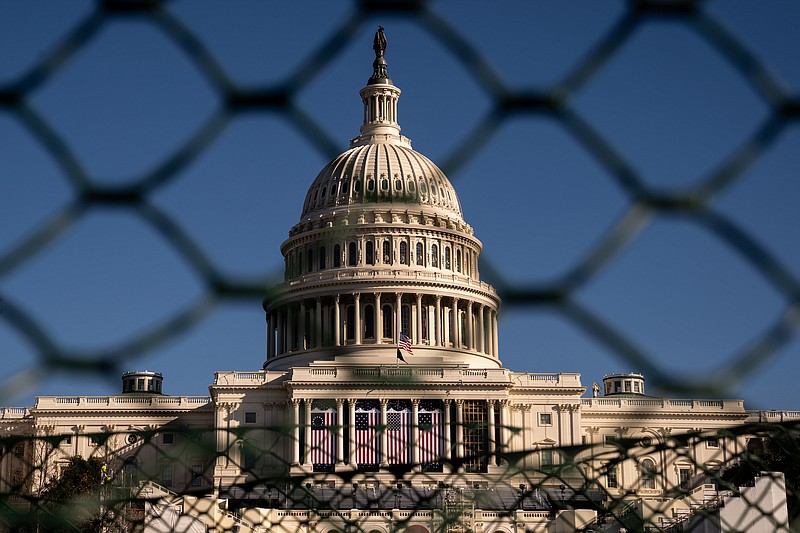Americans continue to have a dim view of Congress. And for good reason.
Legislative gridlock due to closely divided houses is one factor. But the top leaders of both parties, who epitomize Congress to most Americans, are doing little to instill confidence.
Several months ago, Speaker Nancy Pelosi called her Republican counterpart, Rep. Kevin McCarthy, a "moron." Her fellow Californian responded by suggesting it would be "hard not to hit" Pelosi with the speaker's gavel if he wins it from her in next year's elections.
Now, the two Senate leaders, Democrat Chuck Schumer and Republican Mitch McConnell, are at it.
Their feud has been percolating for some time. Their personal relations were hardly helped when Schumer was one of six senators to vote in 2017 against confirming McConnell's wife, Elaine Chao, as the Trump administration's secretary of transportation.
But it erupted more publicly earlier this month after McConnell caved and did something he should have done much earlier, permitting a vote on increasing the legal limit on the federal debt.
The need for periodic votes raising the debt limit has been troublesome for whichever party is running the government at the time. Enacted a century ago, it was intended to help Congress control federal spending, but it has been spectacularly unsuccessful.
The reason: It basically ratifies prior spending and tax actions, rather than brake future ones. Failure to act would force the U.S. government into default, unable to pay bills or collect debts, threatening economic disaster.
As a result, Congress always eventually acts, but often after each party tries to extract political advantage. In this case, McConnell wants to force endangered Democratic incumbents to vote on a package containing both the debt ceiling hike and Biden's spending measures.
Republicans like to point out that many prominent Democrats, including Biden and Schumer, voted against debt ceiling increases during the George W. Bush administration. But they were symbolic votes that didn't affect the outcome, unlike votes in the current 50-50 Senate.
In a sense, these battles reflect the underlying differences today between the parties. Each new Democratic president, like Biden, has sought to expand federal domestic programs, for the most part without the 60 Senate votes needed for most action. That gives the GOP leverage.
Republicans, meanwhile, are less interested in new programs than in stopping existing ones and cutting taxes; the last three Republican administrations did so without providing offsetting revenue, just like the Democrats did on spending measures.
Because the House is likely to remain hopelessly enmeshed in partisan warfare for the foreseeable future, the burden is on the Senate to do something to lower the rhetoric and restore some of the comity that once existed. But that's hard to do when the leaders rarely talk to one another.
When I covered the Senate in the 1970s, personal relations between Democratic Leader Mike Mansfield and Republican Leader Hugh Scott were so close they traveled to China together, soon after President Richard Nixon's initial ground-breaking trip. (House Speaker Tip O'Neill regularly golfed with his GOP counterpart, Rep. Bob Michel.)
Unfortunately, there is very little of that today.
The Dallas Morning News
